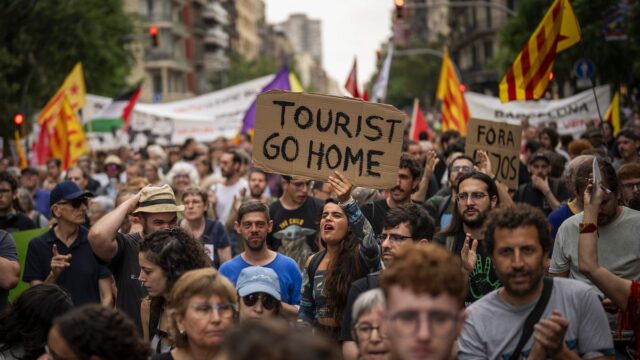Other southern European tourist destinations complaining about too many tourists and overpriced local rentals are Lisbon, Venice and Barcelona.
The Valencian Communityin Spain, will impose fines of up to 600,000 euros to short-term rentals without a license and on the black market, as well as Airbnb type apartments. This is an attempt to stop excessive tourism in the area, which has also increased pressure on local public facilities and driven up rental prices in key European tourist destinations.
According to Airbtics, an Airbnb analytics company, the average Airbnb or short-term rental accommodation in Valencia has a average occupancy rate of 79%, and is booked for 288 nights a year. With an average daily rate of 93 euros, in 2023 hosts earned a typical income of around 27,000 euros for the entire year.
As of April 15 of this year, there were 9,128 active Airbnb listings, according to Airbtics. Some of the neighborhoods of Valencia with increased demand for short-term rentals They are the City of Arts and Sciences, the Silk Exchange and the Valencia Cathedral.
However, the short-term rental market in Spain includes several more apartments, apart from just Airbnbs. As such, it is already a very established market and plays a key role in underpinning the local economy.
The underground economy generates disturbing security problems
In recent months, there has been a rising rents on the black marketdriven by both local owners and foreign expatriates who want to enter the Lucrative Spanish short-term rental market.
Nuria Montes, Valencia Tourism officialreferred to these black market rentals in statements reported by ‘Financial Times’: “We cannot allow no type of underground economy in accommodation. They escape any type of control. Obviously, they don’t pay taxes. We do not know if the owners fulfill their obligations to the workers.
“But the main thing is the security. They do not comply with the obligation to communicate the identity of clients to the authorities. We do not know if they follow the rules for fires, emergencies, evacuation plans“.
According to Montes, it is very possible that there 50,000 or more of these apartments unregulated short-term rentals throughout the Valencian Community.
Currently, Valencia requires owners of short-term rental properties to tourist license from the Valencian Tourism Registry. To obtain this license, they must submit key information, such as property data, the intended use of the property, compliance with quality and safety standards and the owner’s data. Other necessary documents are the property title, house plans, energy efficiency certificates, proof of insurance, etc.
Valencia is the last in a list of tourist cities of southern Europeas Lisbon, Barcelona, Venice and Splitwhich have announced measures to control excess tourism.
Barcelona has already revealed that is working to phase out all Airbnb-style apartmentsuntil reaching an approximate number of 10,000 by the end of 2028. This will also include rentals that operate with a valid license.
Venice has announced that will restrict the size of tourist groups to 25 people per groupin addition to clamping down on cruise ships, while Split residents further protest against party tourists, especially coming from the UK.
Why the short-term rental market is booming in Spain
Spain has long been a tourist attraction point in Europe, for its climate, its bustling cities, its rich culture and its solid infrastructure. In recent years, This has caused a boom in accommodation options, such as villas, country houses and apartments, instead of the more traditional hotels.
In full cost of living crisis, vacations and short-term rentals offer a cheaper alternative to tourists who still want a vacation, but don’t want to spend too much on hotels. In many cases, they also provide a more authentic vacation experience, with more flexibility, comforts and privacy.
He rise of digital booking services and online platforms It has also contributed to the rise of short-term rentals, as holidaymakers find it even easier to book a wide range of options. In some cases, disreputable online booking sites have also allowed unlicensed owners to list their properties, often at cheaper pricesthus attracting more visitors.
At the same time, Spanish real estate companies have also invested heavily in marketing to attract more foreign owners and investors to the Spanish marketl of short-term rentals, often promising great profits.







